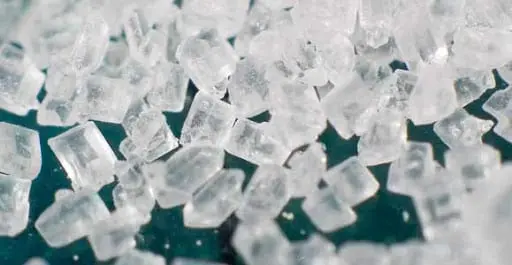Contents
Nowadays, sugar is a product so popular that few people think what exactly is sugar, and why it is so popular.
The source may be different
Approximately 60 percent of sugar made from sugar cane, which is grown in tropical regions of the world, and the rest from sugar beet that grows up to the Arctic circle. Both kinds of sugar does not differ between each other, so you can buy any.
Size of sugar crystals doesn’t matter

Some manufacturers are boosting consumer interest in sugar, producing it in crystals of different sizes and positioning them as “useful” and “natural” product.
However, there is no difference. It is a mistake to believe that a little pieces of sugar are sweeter — it just dissolves easier.
The color of sugar is important
Sugar may be white and brown. The last has the same sucrose but with the addition of a black cane molasses, which is easy to distinguish by smell. Brown sugar is produced only from sugar cane. And sugar from other plants is just stained to produce a brown color.
Brown sugar has the same amount of calories as white — 380 kcal per 100 g. And, despite the fact that the syrup has useful vitamins and minerals, brown sugar also suffers from excess calories as white.
Why do people eat sugar?
First is taste, it makes newborn and little children fun. And no wonder: sugar indirectly increases the release in the brain’s “good mood hormone” — serotonin. Positive attitude you want to keep — in fact the level of serotonin falls as soon as the sugar is digested. There is the “drug chain”, which pushes us toward constant eating of foods containing sugar.
That’s why people are trying to seize a sweet stress and are so used to this way of solving problems that can’t get rid of it by themselves.
Why is sugar harmful?

Sucrose belongs to so called fast carbohydrates. Due to its ability to activate the production of insulin and raise the level of glucose in the blood it is considered the simplest way of obtaining energy. This is why sugary foods are so popular.
However, sweet tooth forget that the level of sugar in the blood caused by fast carbs falls just as quickly. Hunger soon returns forcing people to eat more than they need. Constant alternation of periods of inactivity and hard work quickly wear out the pancreas, leading to diabetes and even cancer.
How to consume sugar correctly?
Experts believe that safe health dose of sugar for women per day may contain up to 100 calories, or about 4 tea spoons of sugar, and for men it is 150 calories , or about 6 tea spoons of sugar. And for the child is less than 1 tea spoon. This norms includes all used sugar from any products. That is not the only put in the tea, but in particular in confectionery products and sweetened foods and beverages.
Therefore, it is necessary not only to count how many spoons of sugar you put in tea, but also pay attention to the labels of other products. The table below shows an example how many spoons of sugar you can get with conventional products.
How much sugar contained in everyday products?
| Product | Teaspoons of sugar | Sugar calories |
| Bank of carbonated drink 0,33 l | 6,5 | 156 |
| The Bank’s energy drink, 0,25 l | 4,5 | 108 |
| Fruit juice in the package, 1 Cup 0,25 l | 6 —9 | 144-216 |
| Fruit yogurt, 250 g | 4,5 | 108 |
| Peanuts and honey, 50 g | 1 | 24 |
| Chocolate bar with peanuts, 60 g | 5 | 120 |
| Vanilla ice cream, 100 g | 3,5 | 84 |
| Ketchup 100 g | 4 | 96 |
| Breakfast cereal, 75 g – one bowl | 4,1 | 98 |
| A chocolate milkshake from fast food, large portion — 600 grams | 18,5 | 444 |
| Oatmeal cookies, on average, 44 g or 1 piece | 3 | 72 |
| A regular cookie, on average, 28 g , 2-3 PCs. | 2 | 48 |
| Dessert wine glass 200 g | 3 | 72 |
| Coffee liqueur, a shot of 50 g | 1,5 | 36 |
| Cocktail “Pina colada”, a glass 140g | 5 | 120 |
| Canned or bottled iced tea, the Cup 225 g | 3 | 72 |
| Dark chocolate 70%, tile 100 g | 5 | 120 |
| Milk chocolate tiles 100 g | 10 | 240 |
| Chocolate truffle, 1 ball,11 g | 1 | 24 |
| White chocolate, tiles 100 g | 10 | 240 |
More about carbohydrates and sugar with in the video below:









